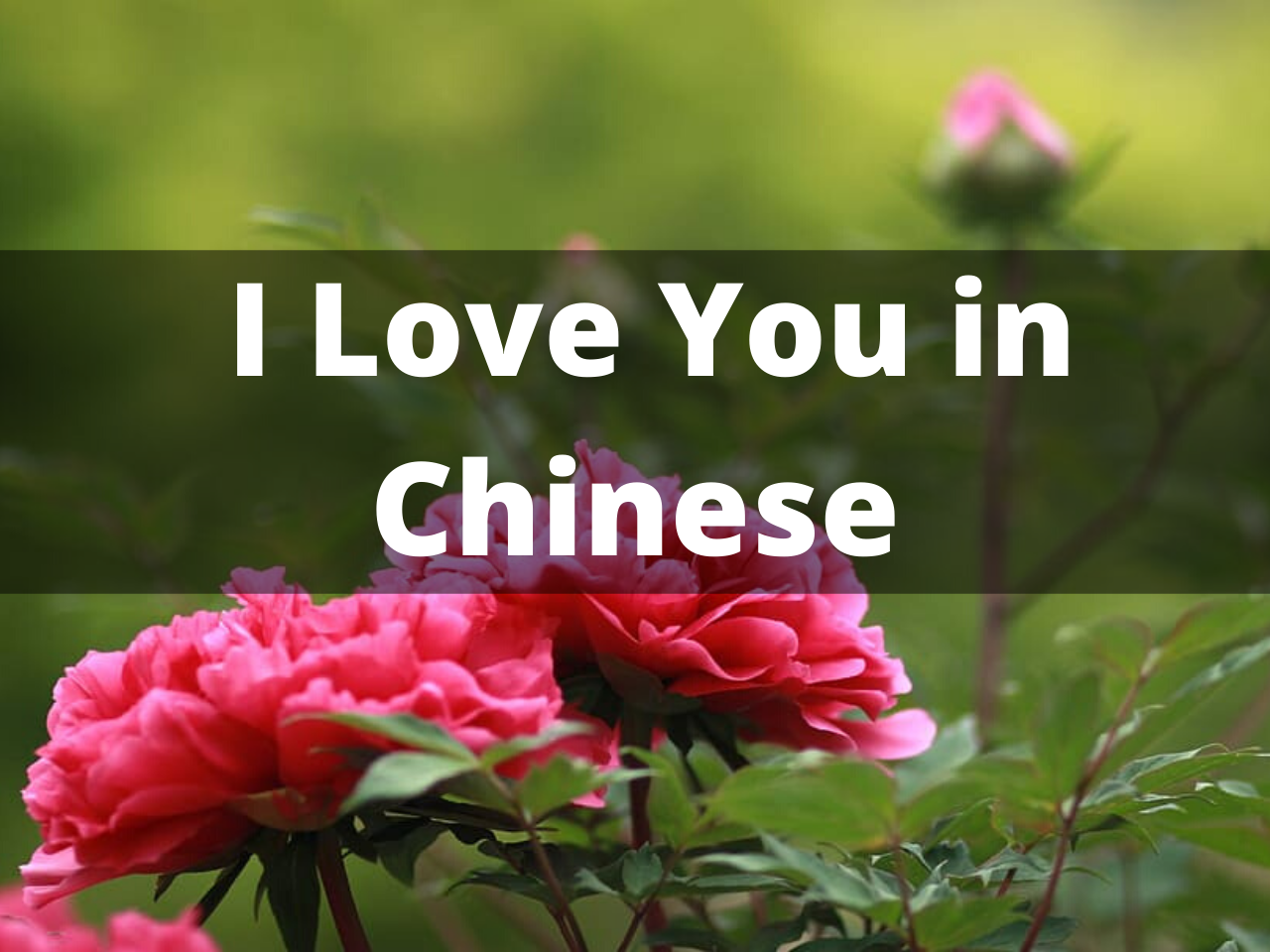
But every single day! Wine for him, flowers for her, little gifts for the both of them. They see the best in us and stick around even the hardest times. That’s because they drown us in authentic, real love. More than just a pretty face and a cool Instagram account. And still, our loved ones are the ones that get to discover more of ourselves. We’re afraid to show our inner, deeper selves. We bury ourselves every day under mountains of unexpressed feelings often because of social media.

Just like the song says, many of us aren’t probably happy in this modern world. Modern society makes us feel so much and express so little! We’ve become shallow.
#I LOVE YOU IN CHINESE HOW TO#
Is this still not enough? Here’s how saying “I love you” different languages can be fun: How to say I love you – a quick guide for “I love you”s in 30 most common languages “I love you” in French – Je t’aime – sounds like it could melt any heart! It has a peerless romantic elegance that is simply contagious. And when it comes to romance, French – being the language of love – is the first thing that pops into our minds. Under its spell, we become brave enough to show our true selves and crazy enough to scream, at the top of our lungs, in the middle of Times Square: I LOVE YOU! But sometimes we feel that even that wouldn’t be enough, so we look for new ways to say “I love you”. Although it makes us do crazy things, it still remains the purest of feelings. Love is such a magical and refreshing feeling. Here are some more ways to say “I love you” in other languages: In Ukrainian, “I love you” is “ya tebe kokhayu” (Я тебе кохаю).In Turkish, “I love you” is “seni seviyorum” (Seni seviyorum).In Swedish, “I love you” is “jag älskar dig” (Jag älskar dig).In Spanish, “I love you” is “te quiero” (Te quiero).In Russian, “I love you” is “ya tebya lyublyu” (Я тебя люблю).In Portuguese, “I love you” is “eu te amo” (Eu te amo).In Korean, “I love you” is “saranghae” (사랑해).In Japanese, “I love you” is “aishiteru” (愛してる).In Italian, “I love you” is “ti amo” (Ti amo).In German, “I love you” is “ich liebe dich” (Ich liebe dich).In French, “I love you” is “je t’aime” (Je t’aime).In Dutch, “I love you” is “ik hou van je” (Ik hou van je).In Chinese, “I love you” is “wǒ ài nǐ” (我爱你).In Arabic, “I love you” is “ana behibak” (أنا بحبك).Each version has its own unique charm and significance. But did you know that saying “I love you” in different languages can add an extra layer of meaning and beauty to your message? From French’s Je t’aime to Spanish’s Te quiero and to Japanese’s Aishiteru, the way we express love varies greatly across cultures and languages. These common points between couples make love more stable.When it comes to expressing our love and affection, there’s nothing quite as powerful as those three little words: “I love you”. In traditional Chinese characters, this expression would be written as,

It is also spoken in various parts of Hong Kong and Taiwan. Hakka Chinese is only spoken by a small amount of people, usually ethnic Hakka people who live in provincial areas of China, including Hunan, Fujian, Sichuan, Guangxi, Jianxi, and Guangdong. For speakers of the Hakka dialect, you should use this phrase to say “I love you” instead of using the Standard Chinese phrase. This expression is roughly pronounced, na(wh) OI nay.ģ State “ngai oi ngi” in Hakka Chinese. In traditional Chinese characters, this expression would be written as, 我愛你。 Many people speak this Chinese dialect in Hong Kong and Macau, as well.

If speaking or writing to someone who speaks Cantonese, this would be the best way to tell him or her “I love you.”Ĭantonese is another common dialect, but it is mostly spoken in southern China. The “ai” is a fourth tone (sharp, falling pitch) and the “ni” is again a 3rd tone.Ģ Use “ngóh oi néih” when speaking Cantonese. The “wo” should be pronounced in the 3rd tone (slightly dipping and then rising to a higher pitch). This expression is roughly pronounced, whoa-eye-knee”. In traditional Chinese characters, this expression would be written as, 我爱你。

Mandarin has more native speakers than any other Chinese dialect, and it is spoken across the majority of norther and southwestern China. Standard Chinese and Mandarin are, essentially, one in the same. This is the most common, standard way of telling someone “I love you” in Chinese. 1 Say “wǒ ài nǐ” in Mandarin or Standard Chinese.


 0 kommentar(er)
0 kommentar(er)
